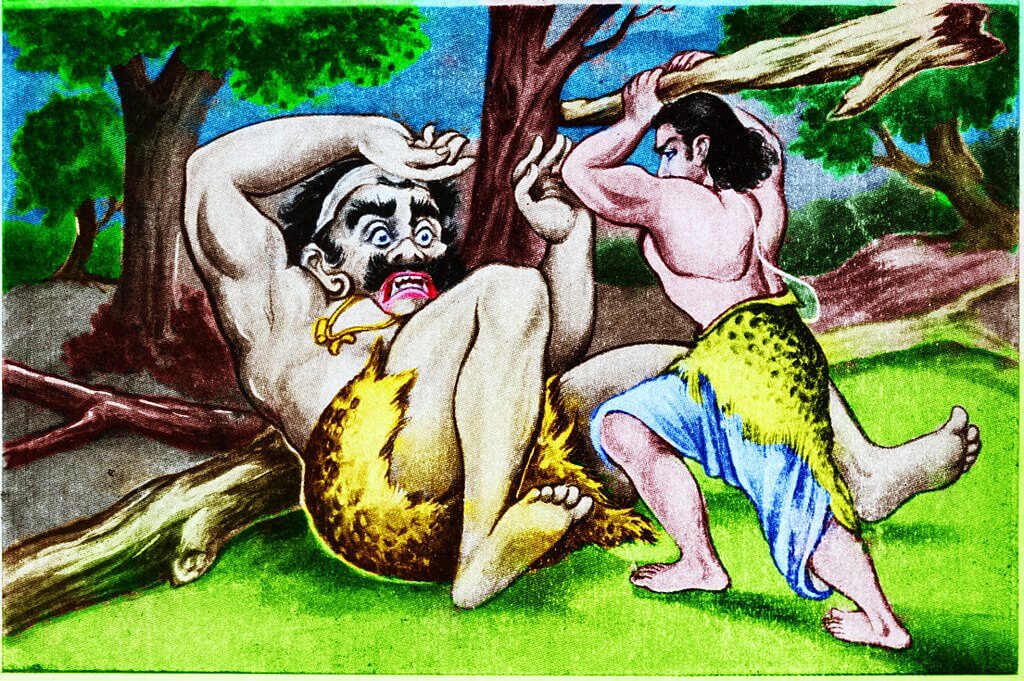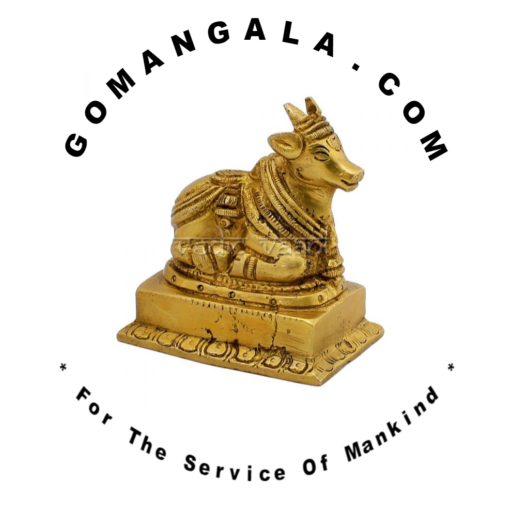Bakasura Parva is the tenth upa parva included in the first maha parva, named as Adi parva, in the epic Mahabharat.

मूलं भुजगैः शिखरं विहगैः शाखां प्लवगैः कुसुमानि भृगैः । आश्चर्यमेतत् खलुचन्दनस्य परोपकाराय सतां विभूतयः ॥
Meaning: Good people are like a sandalwood tree and wonderful. The roots of sandalwood tree provide shelter to snakes; top provides to birds, branches are used as seat by monkeys; flowers are sucked by bees for honey. Similarly, the assets of noble men, spent in serving others as helping hands.
Vaishampayana narrated the incidences to Janamejaya and continued:
The five Pandava brothers used to help people in distress. The person who provided shelter for them was a learned man and possessed sympathy for suffering people. In the day time, Kunti remained in the home with one of her children and the remaining children had wandered as seers and collected some alms daily. In the evening, they gathered in that house. They lived there for a few weeks.
One day, Bhima remained in the house with his mother Kunti. Suddenly they heard hot discussion among the family members of their host. They collected the facts.
There lived in the nearby forest a demon king. His name was Bakasura. There were few villages surrounding the Ekachakrinagar. The demon king had enacted a rule for the villagers to provide him daily food. The food should be carried in a bullock cart; the person driving the cart must be prey for the demon along with the bullock. He would eat the food, kill the cart driver along with the bullocks and eat as much as he could and feel satisfied. The cart must be dispatched in the evening every day.
In that house, there was a chief of that family, his wife and two children, one female and one young boy. On that day, it was their turn to send a man with food for the demon. The person would be killed if he had taken the cart into the forest. The villagers are free to send anybody but he would be killed by that demon. Since his food intake was huge, he was named as Bakasura.
Kunti learned about the reason for their grievances. The house owner was a Brahmin, had to go to the forest, and with the food loaded in the bullock cart that night to satisfy Bakasura. If they failed, Bakasura would enter the village and kill most of them and eat them as much as he needed. Hence, the havoc was in that house. Kunti had decided to solve the problem. She had faith in the strength of Bhima, her son, born after worshipping Vayu.
Kunti approached the lady of the house and promised remedies to her and not to worry. She properly instructed Bhima also. The Brahmin with the members of the house was requested to keep the secret regarding rearrangements.
In the evening, Bhima had started to forest, driving the bullock cart loaded with rice as food. He left the village and entered the forest to meet the demon, Bakasura.
Yudhishtira and his three brothers returned after collection of the alms for that day’s food. When Bhima could not be found, they enquired Kunti and understood the situation. Initially, he disliked the departure of Bhima but Kunti explained the morality and the necessity of the situations. Then Yudhishtira waited for the arrival of Bhima.
The hungry demon was waiting in the forest. Bhima was also hungry then. Bhima disliked the idea of the demon to kill the cart driver who brought food for him and felt him as a creature, better to kill immediately. Hence he started to eat the food in the cart himself in front of the demon. When the demon had come near his cart, he had finished eating all the food himself. Bakasura wished to hit Bhima. Then a fight started. Bakasura was hungry and Bhima had gained sufficient strength. Bhima had caught the body of Bakasura and with his waist belt strongly pressed over his back until his body cut into two pieces. In the night, there was a verbal war but nobody could hear the loud scream of Bakasura in the deep forest.
Bakasura was a cruel demon. His dead body was hung for boosting the confidence of the villagers near the entrance. They need not worry to collect food for him on the next day. Hence he saved the life of people who would otherwise have been killed next. He also saved the life of further bullocks that would have been killed.
Bhima had arrived back to the house after the completion of the task and narrated everything to Yudhishtira. On the following day, when people had seen the view of Bakasura dead, due to curiosity they started to enquire in the house of the Brahmin as they knew it was his turn on the previous day. When people understood Bhima had possessed an able body and a guest of that Brahmin, they showed greater respect for the five Pandava brothers. They discussed the matter and decided to collect the food as usual but to provide it for the five Pandava brothers in gratitude for their service rendered to their village and who saved many lives there.
Next post, Mahabharat: Chaitraratha Parva may not be missed.
Mahabharat: Swayamvara Parva would be presented separately in another article.
Readers may share this story with children, friends and family.

0 Comments
1 Pingback